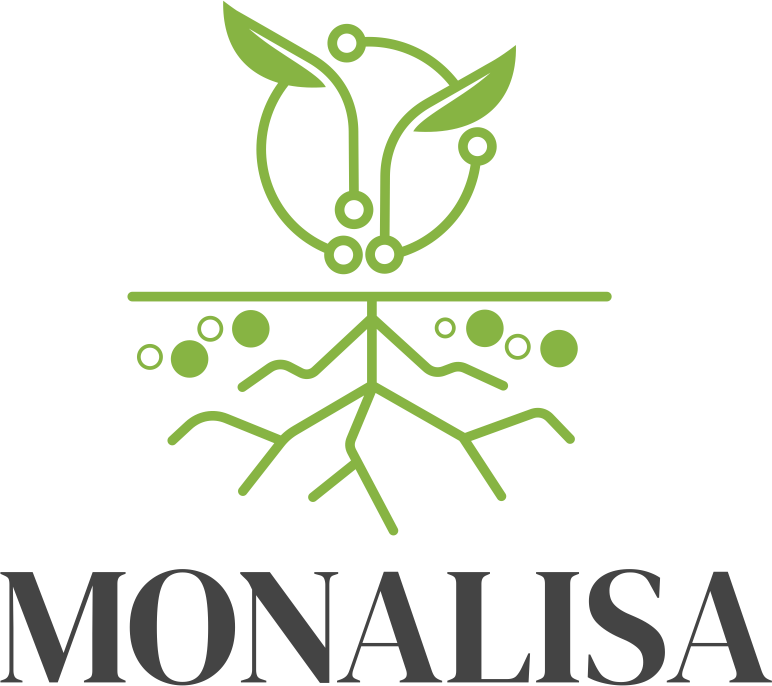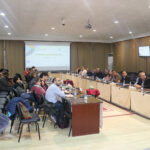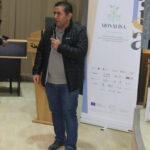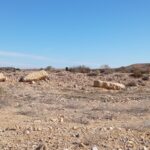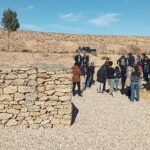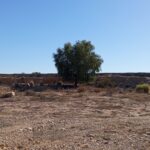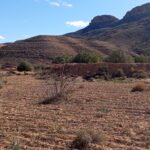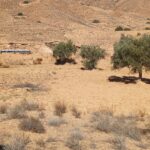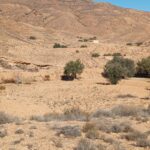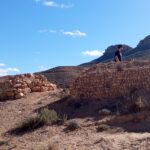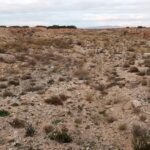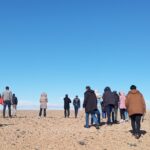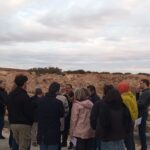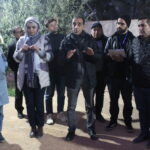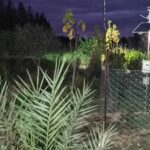In January 2025, Institut des Régions Arides (IRA) and the Commissariat Régional au Développement Agricole (CRDA) organised the Médenine Case Study Field Visit and Stakeholders Meeting in Tunisia. In the scope of two days stakeholders and project partners disscused the pressing issues of desertification and land degradation, advancing sustainable solutions tailored to Mediterranean drylands. Filed Visit was organised to provide insight into all locations of the MONALISA Médenine Case Study and solutions for water harvesting and soil quality management.
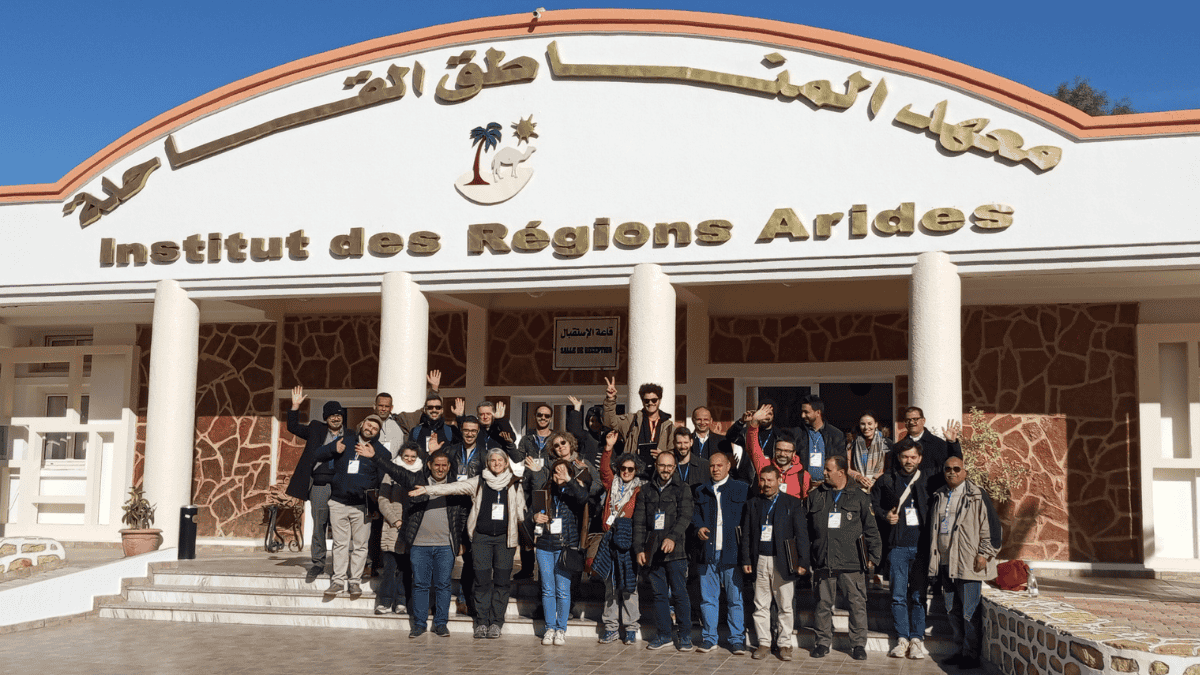
Day 1: Welcoming Conference and Case Study Field Visit
Welcoming Conference at IRA Headquarters
The meeting started with a welcoming conference at the IRA Headquarters.
This session set a collaborative and inspiring tone for the
two-day meeting, emphasizing the shared commitment to sustainable development
and stakeholder-driven solutions.
Director General of IRA Sghaier Najjari and Ammar Jamai, Director General of CRDA, welcomed the participants and underscored the essential role of research and innovation in combating desertification and emphasized the importance of regional cooperation and local engagement in addressing land management challenges.
The Scientific Coordinator of MONALISA, Giovanna Seddaiu introduced the project’s vision and objectives and expressed the Consortium’s excitement to visit the Case Study locations.
Mohamed Ouessar, Head of the Combating Desertification Laboratory at IRA, provided an overview of the challenges faced by the Médenine region and Mongi Ben Zaied, the Médenine Case Study Lead, presented the broader context of MONALISA’s work in Tunisia and the unique contributions of the Médenine Case Study.
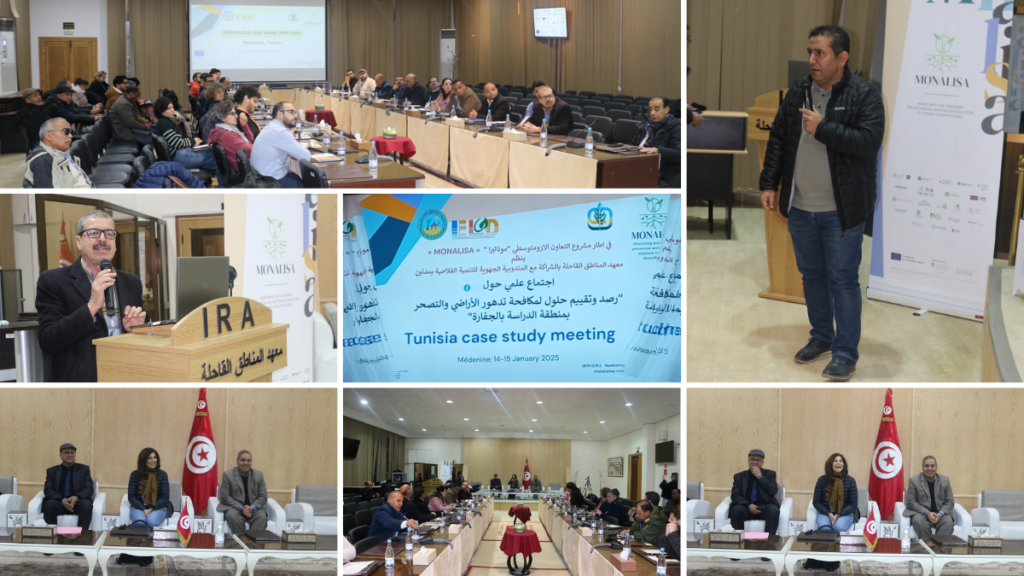
Learning from the Land – Field Visit Highlights
The first day of the event was dedicated to exploring the Médenine Case Study, where participants engaged directly with local practices and innovations addressing land degradation.
Key Stops and Insights
Recharge well system in Koutine – The group observed systems specially designed to recharge aquifers, reduce evepotranspiration and reduce water scarcity. This type of solution is an essential innovation for arid regions. According to Case study IV: perception of traditional and contemporary water harvesting techniques in the arid regions of Tunisia by M. Ouessar, M. Sghaier and M. Fetoui, in areas with low bedrock permeability, drilled casting tubes in wadi beds serve as recharge wells, enhancing the infiltration of runoff into the groundwater aquifer.
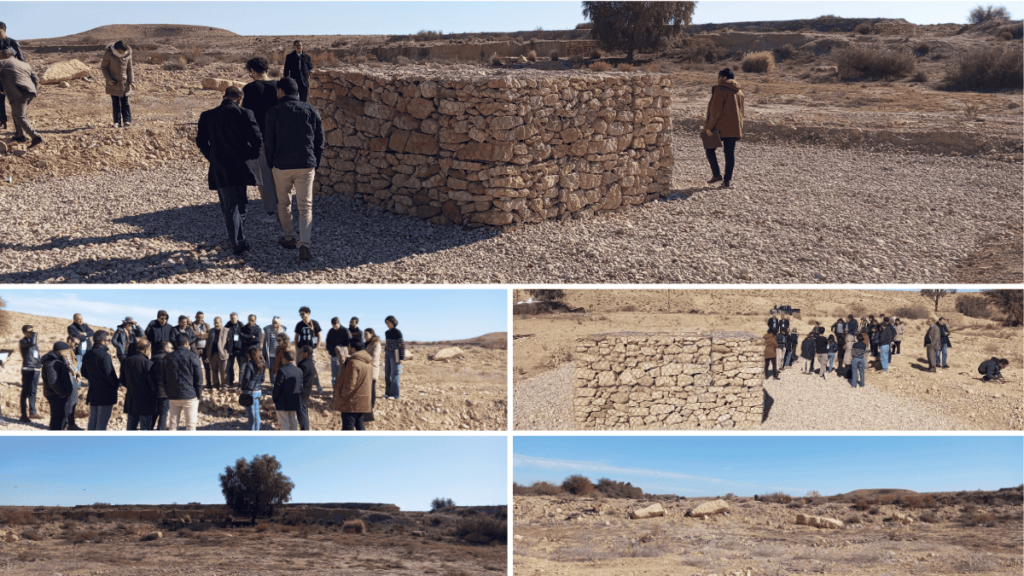
Jessour traditional farming techniques
This traditional method combines water harvesting and slope stabilization to enhance productivity and protect soil health.
In Case study IV Jessour is defined as a series of stone and earth walls, known as tabias, built across streambeds in narrow valley watersheds. These structures trap runoff water and silt, creating terraces that form a stair-step pattern down the slope.
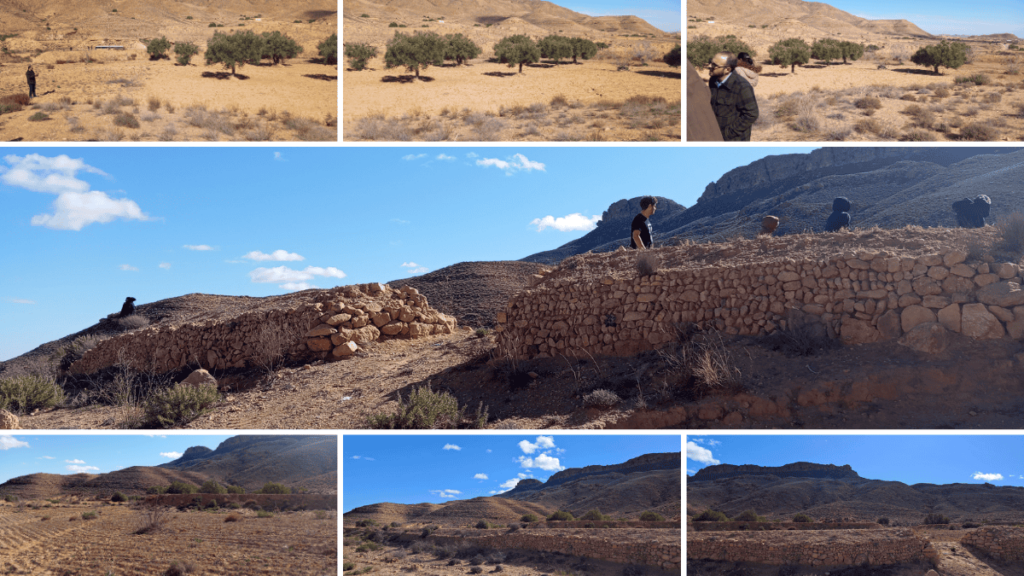
Rangeland management in Dahar
Solutions to combat overgrazing were showcased, emphasizing the restoration of native vegetation and soil quality.
This case study location sparked a dynamic discussion on effective solutions to protect rangelands from overgrazing while ensuring economic viability and minimizing negative impacts on local farmers. Experts and leads of the Tunisia case study area indicated that for an area to regenerate, grazing needs to be completely stopped for up to 5 years due to low precipitation levels and frequency.
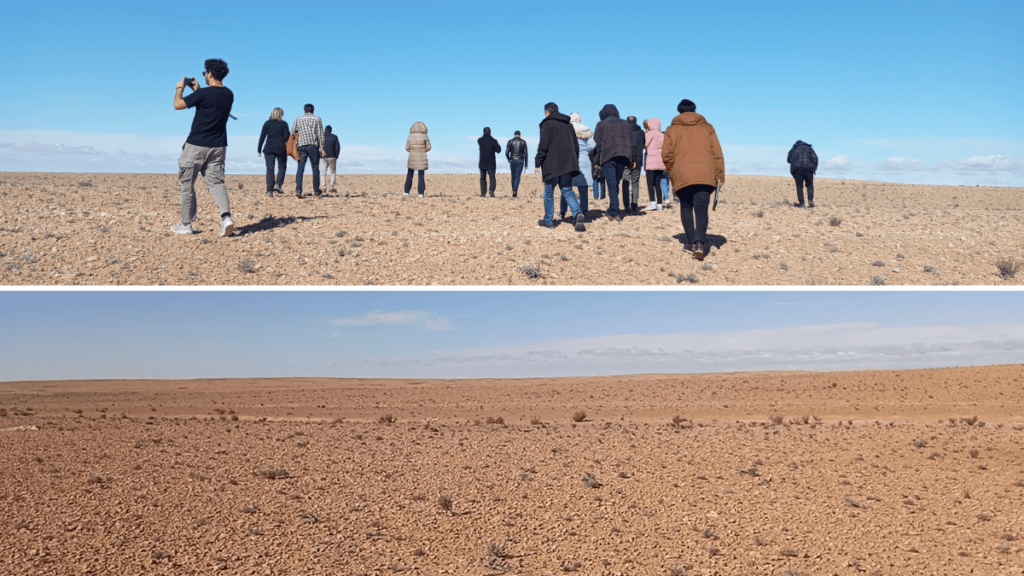
Gabion check dams at Wadi Arniène
A visit to these structures highlighted their effectiveness in preventing soil erosion and balancing water distribution.
According to M. Ouessar et al. Case Study IV Gabion Check Dams are constructed to slow runoff flow, these structures increase water infiltration into underground aquifers and help divert some runoff to nearby cultivated fields.
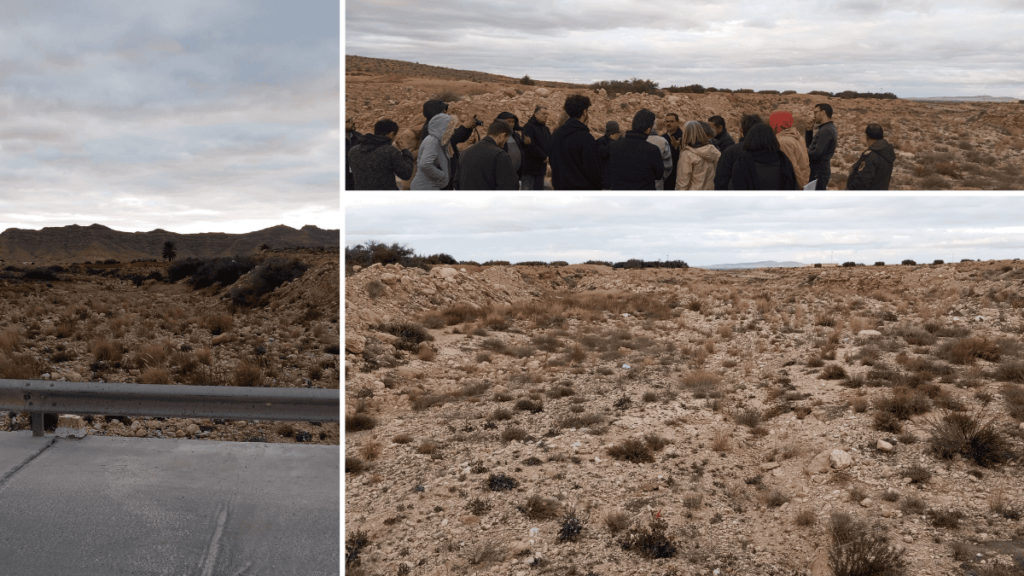
Smart irrigation agro-techniques in Mgarine
Participants explored advanced water management practices designed to optimize water use and allocation in challenging climates.
The final location for this case study presented a striking change of scenery, demonstrating how innovative and carefully designed management can positively impact agricultural production and the environment.

Day 2: Knowledge Sharing and Strategic Planning
The second day focused on stakeholder engagement and collaborative planning, bringing together presentations and discussions aimed at refining sustainable strategies.
Session 1: Presentations and Discussions
The morning began with Giovanna Seddaiu, the Scientific Coordinator, presenting an overview of the MONALISA Project and its goals. Following this presentation Mohamed Messai, Head of the Division RPS, CRDA Médenine explored practical approaches to soil and water harvesting management, while Zouhair Khabir delivered a compelling presentation about the exploitation of water resources in the Médenine region, offering insights into local challenges. To close the first session of the day, Fatma Aribi: shared findings on the socioeconomic impacts of water harvesting techniques, highlighting their influence on communities. The session concluded with an interactive discussion, emphasizing the importance of integrating discussed approaches to address regional needs.
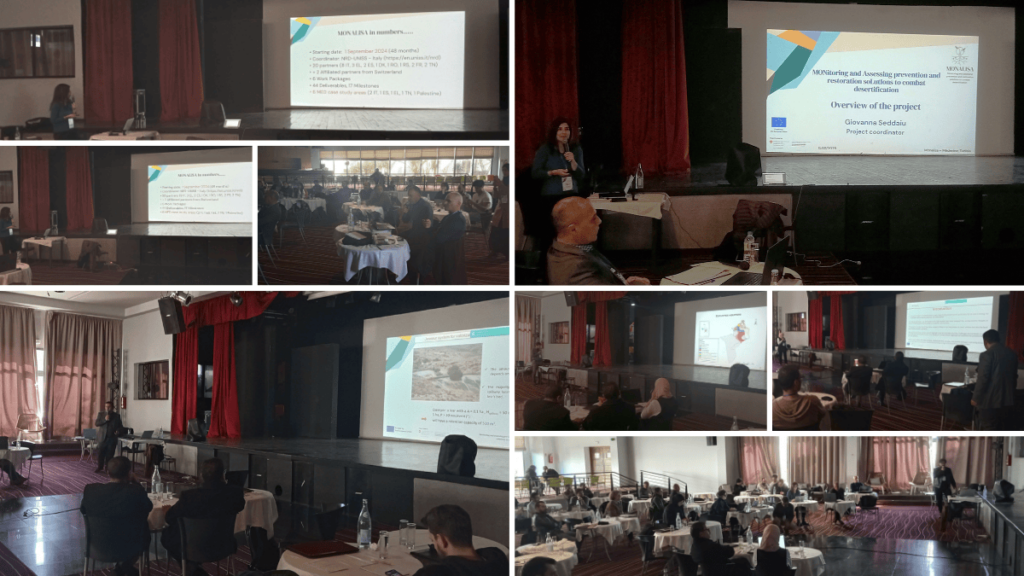
Session 2: Case Study Updates and Stakeholder Contributions
This session brought updates from the field, led by Mongi Ben Zaied, who presented an overview of ongoing Médenine Case Study activities. Followed by Saad Slama presenting the management plan for Daher rangeland, showcasing strategies for sustainable grazing practices, Nadia Korchid showcased insights into soil analysis practices, based on private sector experiences and Houssemeddine Henchir highlighted the role of a private company in agricultural services, underscoring public-private collaboration.
As we closed the second chapter of the MONALISA Case Study Field Visits in Médenine we discussed the most remarkable natural phenomenon – RAIN.
The MONALISA project brought rain to the first two case study locations, signifying hope and solutions for combating desertification. We look forward to extending this positive impact to the next Case Study.
Stay in touch, the next Case Study in the MONALISA Agenda is Asterousia in Crete, Greece in April 2025.
